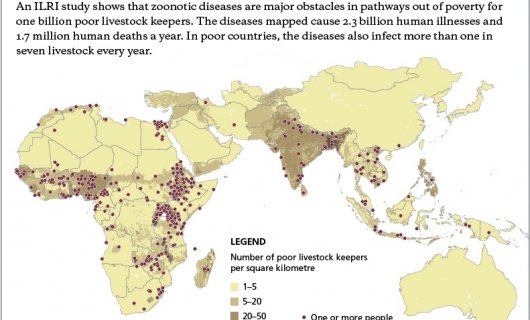IDReC research contributes to knowledge about the two most globally important zoonoses
by Charlotte Bolwell

ILRI and collaborators recently submitted a report to the Department for International Development in the UK that highlighted that the zoonotic disease burden is greatest for the poorest people in the world. As part of this study zoonotic diseases were ranked in terms of their impact on humans and livestock; this process clearly showed gastrointestinal diseases are the most important class of zoonotic disease, with leptospirosis taking the second position on the list. IDReC has well established research programmes in zoonotic gastrointestinal disease and leptospirosis incorporating a wide range of approaches including large scale case-control studies, source attribution modelling, spatial and temporal disease dynamic modelling and studies of disease emergence and evolution.
The leptospirosis team are involved with assessing the appropriateness of farm vaccination protocols, and evaluating the economic impact of subclinical infections in various stock classes with recent trials demonstrating lower carcass weights at slaughter and poorer reproduction rates in infected farmed deer herds. A much underdiagnosed disease both in humans and animals, another area of research encompasses evaluating the value of a variety of diagnostic tests at differing stages of the disease in both humans and animals.
The full ILRI report is available here: Mapping of poverty and likely zoonoses hotspots: Report to the Department for International Development